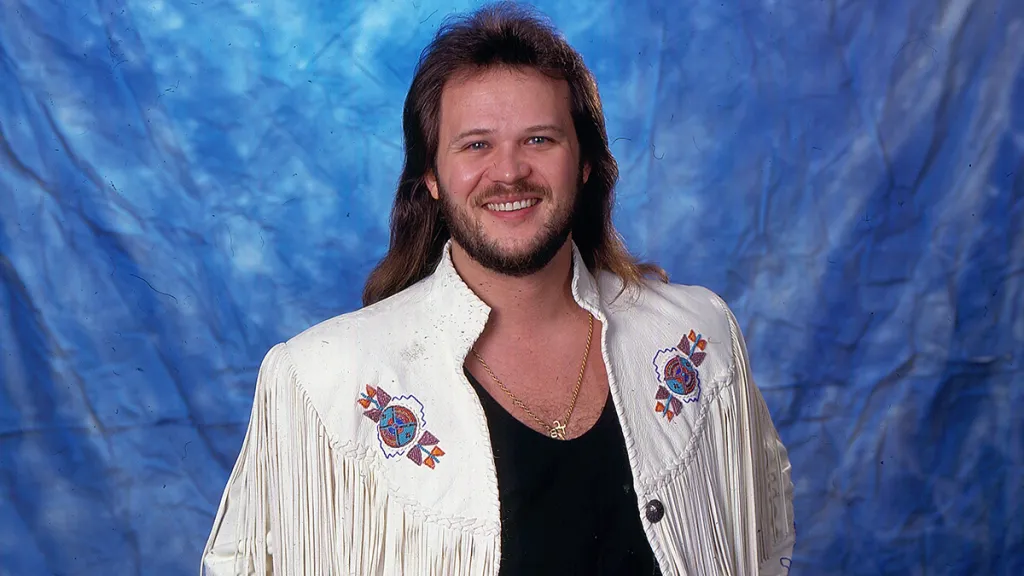
A plainspoken lament with a backbeat—a son’s Lexus in the driveway, a father’s handshake fading, and the old country giving way to something you barely recognize.
Essentials up top. Song: “Country Ain’t Country.” Artist: Travis Tritt. Album: Strong Enough (Columbia Nashville, released Sept 24, 2002). Single release: Jan 25, 2003 (second single from the album). Writers: Teresa Boaz, Casey Beathard, Carson Chamberlain. Producers: Travis Tritt & Billy Joe Walker Jr. Length: 4:16. U.S. chart peak: No. 26 on Billboard Hot Country Singles & Tracks. Track placement: Track 4 on the album.
When “Country Ain’t Country” hit radio in early 2003, it arrived like a friendly knot in the stomach—recognizable to anyone who’d watched a hometown tilt from pasture to cul-de-sac. On paper, it’s a mid-tempo country rocker; on tape, it’s a ledger of quiet losses sung by a man old enough to know there’s no turning back. Tritt doesn’t snarl here. He observes, letting the verses stack like entries in a family notebook: the kid raised “on a tractor in overalls and boots” who comes home a lawyer in a sleek car; the way handshake deals quietly vanish; the rural back forty sold off “by the half-acre lots overnight”; the Sunday drive that turns into four-lane traffic. (Even the mordant modernism—heifers traded “online”—lands as a rueful shrug, not a punch line.)
Part of why the song resonates for older ears is where Tritt was in 2002–03. He’d just crossed to Columbia Nashville after his Warner years, and Strong Enough was a re-centering record: sturdy songs, less swagger than his early ’90s barroom roar, more attention to everyday consequence. The album’s first single—“Strong Enough to Be Your Man”—made the Top 15; “Country Ain’t Country” followed as the second single and climbed to No. 26, a respectable showing for a lyric that chooses specificity over easy slogan.
Musically, you can hear the Bakersfield bones that have always fit Tritt well, trimmed for turn-of-the-century radio. Co-producer Pete Anderson isn’t here—this is Tritt with Billy Joe Walker Jr. at the helm—and the sound is bare-floor clean: snare and kick in a firm pocket, electric Telecasters nipping at the vocal, steel and fiddle answering in short phrases. The album personnel list reads like a who’s-who—Brent Mason, Dan Dugmore, Reggie Young, Aubrey Haynie, John Barlow Jarvis, and more—and while not every player appears on every cut, you hear that Nashville A-team economy in the way the track moves: no waste, no grandstanding, just time kept and truth told.
The writing matters, too. Casey Beathard, Carson Chamberlain, and Teresa Boaz craft verses that resist preaching. They point, they note, and they let you supply the ache. That restraint is what makes the refrain land so hard: country ain’t country no more is less a complaint than a diagnosis—six words that hold grief for the soft skills vanishing with the topsoil: trust, pace, place. On the page and in the PRO ledgers, the credits are tidy; on the ear, the three writers sound like they’ve walked the ground they’re describing.
Listen to Tritt’s phrasing and you’ll hear the record’s secret. He rides a hair behind the beat—easy, unforced—so the images feel remembered, not performed. The band leaves air around him; the hook doesn’t shout, it settles. And the last chorus doesn’t crescendo into triumph (what would that even sound like here?); it stays human, a working man’s headshake at a world moving faster than the heart can catch. That’s why the track has held up, even as the title itself has been borrowed and echoed by others: it’s a conversation, not a stunt.
Context helps, too. On Strong Enough, slotting “Country Ain’t Country” as Track 4 keeps it early enough to color the whole set. The album’s guitar-forward clarity—mixed by Chuck Ainlay (except one cut)—lets the lyric do its work without studio gloss. And the choice of single said something about Tritt’s aims in the early 2000s: he wasn’t chasing novelty; he was taking stock. Fans heard it. Many would later see him perform a live variation, “Country Ain’t Country No More,” sometimes adding a topical verse (aimed at, of all things, cable music TV) that sharpened the song’s thesis without changing its spine.
For those who keep sleeve notes close: the single carries Columbia Nashville branding, produced by Travis Tritt & Billy Joe Walker Jr., clocking 4:16 on most editions; the album bowed Sept 24, 2002, with “Country Ain’t Country” issued to radio in late January 2003; it peaked at No. 26 on Billboard’s country chart. Pull the Strong Enough track list and you’ll find it parked right after “Strong Enough to Be Your Man,” working as a kind of grounding wire for the rest of the record.
Play it now, and it may feel less like a complaint than a keepsake—a three-minute Polaroid of a place you knew before the cul-de-sacs arrived, when a deal could ride on a handshake and the Sunday drive was a joy, not a chore. Travis Tritt doesn’t scold or sigh; he measures. And in the measured voice of a grown man telling the truth, “Country Ain’t Country” becomes what the best country songs have always been for older listeners: a way to name what’s been lost, and a way to keep company with what remains.